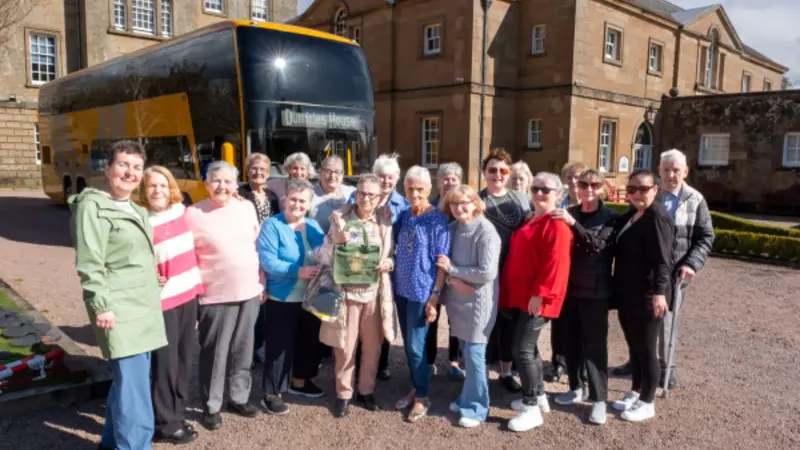Staff spotlight - 60 seconds with Equality and Diversity Manager Rohini Sharma Joshi
Rohini joined Age Scotland part-time in May after nearly 34 years in housing.
She started her housing career with the City of Edinburgh Council as Estates Supervisor and then as Housing Officer and Block Manager.
Rohini came to Scotland from India in 1981. She has two children,a son and a daughter and four grandchildren.
Tell us about your role at Age Scotland?
My role as Equality and Diversity manager is to make Age Scotland an inclusive organisation by encouraging ethnic minority older people to get involved in all levels, from policy to receiving services offered. Also putting practices in place to remove the barriers that currently exist for those in accessing information and services.
What does a typical day look like?
I work part time (two days per week) which means I must organise my days by connecting with colleagues to learn about the various projects and activities at Age Scotland. And also connecting with ethnic minority groups and individuals to inform them of my new role. I am still learning, and it will be a while before I fully understand all areas of work. I am happy to ask questions and likely to get it wrong, but I will get there in the end.
How can we strive to ensure we are representing older people from all backgrounds?
I have extensive contacts and experience working with ethnic minority communities throughout Scotland. Firstly, groups and individuals from different backgrounds must know what Age Scotland does and how it can support them. There will be clear message that Age Scotland is committed and keen to work with older people from all backgrounds. There is a need to reach out and establish a trusted relationship with the groups so that they can be empowered to seek the information and services that Age Scotland has to offer.
Loneliness is a big issue particularly in the LGBTQ+ community. How can society help?
Loneliness and isolation are a big issue for older people particularly those most vulnerable in society due to disability, sexuality, or different background. We must remember the intersectionality of older people as an older person can have all three characteristics. Loneliness can also be a result of discrimination, having fewer social contacts, less interaction or communication barriers. There should be a clear message that Age Scotland is for everyone. A focused approach is needed to reach out to LGBTQ+ groups or individuals so that they feel supported and can talk to someone without the fear of being judged.
Will ageism get worse in the post-pandemic workplace and how can we tackle it?
The pandemic exposed the existence of ageism in our society and workplaces, but it also brought a much-needed focus on the disproportionate impact on older people. It had an even greater effect on the most vulnerable older people who required additional support. It is an opportunity to raise awareness and take positive actions with the evidence of impact which has been overwhelming. Employers were made to introduce new policies and take quick actions to safeguard their older employees and customers. Hopefully, it will continue in the post-pandemic culture of organisations. It is important to build on the experience and keep reminding organisations the danger of ageist practices.
What do you love most about your job?
I always say that equality can’t be just a job, you must believe in it. I have a passion for my job and making a difference to the lives of the most vulnerable in our society is the most satisfying part of the job!!
What’s the best piece of advice you’ve been given?
Believe in what you do and give it all you have!
What are your hobbies/interests outside of work?
I have many hobbies as I like to be active: Travel, gardening, music, puzzles, time with my grandchildren. I started embroidery and knitting during the pandemic.
How would you describe Age Scotland in 3 words?
Passionate, Caring, Supportive.


